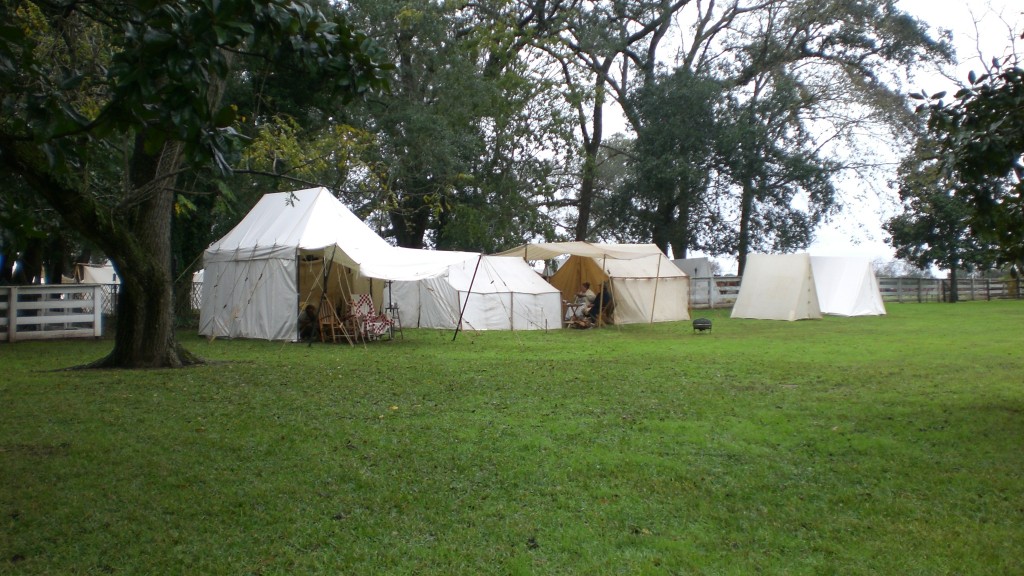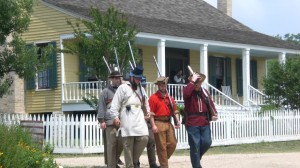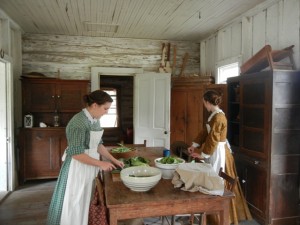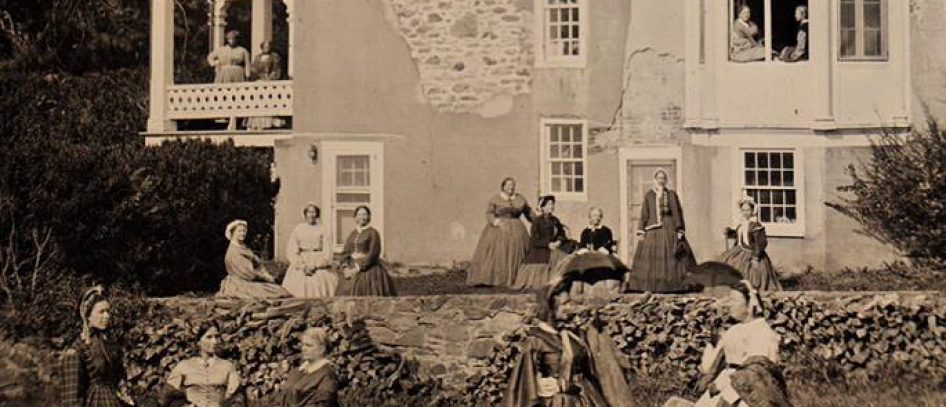 Now that you are attending an event, what do you do once you get there? The typical mainstream event will usually offer a ladies’ tea during the day and a dance after the event has closed to the public. This does not give much for the civilian reenactor to do; therefore, it is important that you attend events prepared to provide your own entertainment.
Now that you are attending an event, what do you do once you get there? The typical mainstream event will usually offer a ladies’ tea during the day and a dance after the event has closed to the public. This does not give much for the civilian reenactor to do; therefore, it is important that you attend events prepared to provide your own entertainment.
If this is your first event you might wish to walk around the event site and visit some of the other reenactors to see the types of activities they participate in. If allowed, walk through the military camps to see how they occupy their time between drill and the battles. This will also give you an opportunity to find the location of the toilet facilities, visit any sutlers and get a basic “lay of the land”. The public may ask you questions about the event and having a basic idea of where things are may be of help.
If you plan to prepare your meals at the event, this will probably take most of your time and keep you pretty busy. Between time, or if you do not plan to cook, women might knit, sew, spin or work on other handcrafts. Both sexes might enjoy reading from period newspapers or books; playing period games; making music; writing or reading letters; or working on period art projects. Men can participate in the activities associated with their  impressions’ professions, if appropriate for the event, such as a newspaper man covering the battle, a peddler, or a minister visiting the troops. These types of activities serve as great ice breakers with the public as well.
impressions’ professions, if appropriate for the event, such as a newspaper man covering the battle, a peddler, or a minister visiting the troops. These types of activities serve as great ice breakers with the public as well.
Some civilian impressions are associated with the military such as nurses, laundresses, civilian military contractors and the US Sanitary Commission. Your time will probably be busy with activities associated with your impression. Be sure to research these impressions thoroughly to ensure your activities are appropriate for your impression.
At some events it is possible to create an event within an event and develop your own scenarios such as a picnic, political speeches, temperance marches, ladies’ aid society meetin gs, or spiritual revivals. Just be sure that your activities do not compete or interfere with the activities planned by the event organizers.
gs, or spiritual revivals. Just be sure that your activities do not compete or interfere with the activities planned by the event organizers.
Events that provide actual structures to occupy offer a greater range of activities that include not only those mentioned above but also activities associated with housekeeping, community events, commerce and subsistence.
Here are some additional suggestions:
Discussion Topics
- Recent visits and/or travels
- Slavery and/or abolitionism
- Godey’s fashion
- Fashion of the 50s better than 60s
- Photography
- Discussing how the war has affected people
- Trade
- Local gossip
Activities
- Preparing meals
- Chores
- Participating in occupation
- Sewing, knitting, spinning, other handcrafts
- Reading aloud from newspapers or books
- Sharing photographs of family members
- Playing period games
- Music
- Arts
- Visiting
